Isaiah 55:1-11 ~ 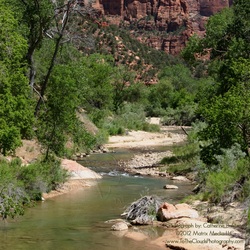 I was drawn to the last section of the text - the part about rain coming down from heaven and having an agenda from God. It waters, make growth possible. It has a purpose and the creative order has made it such the rain does what it's supposed to do before it returns to the sky. Water. There is a finite amount of water on the earth. I went poking around at resources online after reading this passage and found a great classroom activity here. "Water (H2O) is a very important molecule. Because of water, Earth is able to support many different life forms. In humans, water makes up between 68% and 72% of the body volume (depending on gender and body composition), and it is so important that we cannot survive longer than 3 days on average without replenishment. If you look at a model globe, approximately 70% of the surface is covered by water. Of that total water, 97% is in the oceans and is undrinkable without desalination treatment (to remove salt). Of the remaining fresh water, less than one half of one percent is available in surface sources like lakes, rivers, and swamps. Most fresh water exists as glacial ice or is trapped underground" 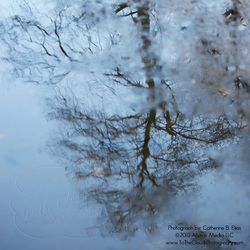 As I write this reflection, there is a very thin layer of snow that has just fallen onto the ground. By this afternoon, it will be have melted into the ground and/or evaporated. It will, by this text, have fulfilled its destiny: watering the earth, providing seed for the sower and bread for the eater. Does the word of God in our lives have the same efficiency? I have to be honest, I am not always efficient with my resources - my time, my talents, or my treasures. Sometimes I use them; sometimes I let them go to waste. Sometimes I overuse them, abusing them. As a young pastor, I was told, "if we would simply answer the phone and do the things in front of us, we would keep from idleness while following the lead of the Spirit." At first blush, that almost sounds like I've been given cart blanche to do whatever I wish. But that was not its intent. The truth is - if I begin each day with the intent to do the things that are most important - the things that are right in front of me. If I choose not to ignore the difficult things on my todo list that are indeed important, I find myself following the lead of the Spirit. I almost see those important things like the snow that has fallen on the ground today. I believe the Spirit provides in a daily manner guidance if we would simply look at what is in front of us and act responsibly. And before we think that sounds too easy or too unintentional - that which is rained down on us, the snow that lays on the terrain of our lives... it has an agenda. And it's going to keep pursuing its agenda until its fulfilled. The difficult part is to discern which part of the agenda is ours and which is God's. The pictures in this article are available at To the Clouds Photography
1 Comment
After these things the word of the Lord came to Abram in a vision, “Do not be afraid, Abram, I am your shield; your reward shall be very great.” 2But Abram said, “O Lord God, what will you give me, for I continue childless, and the heir of my house is Eliezer of Damascus?” 3And Abram said, “You have given me no offspring, and so a slave born in my house is to be my heir.” 4But the word of the Lord came to him, “This man shall not be your heir; no one but your very own issue shall be your heir.” 5He brought him outside and said, “Look toward heaven and count the stars, if you are able to count them.” Then he said to him, “So shall your descendants be.” 6And he believed the Lord; and the Lord reckoned it to him as righteousness. 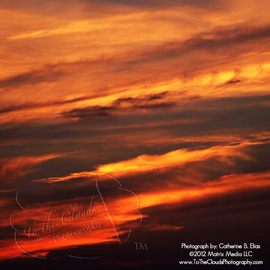 This has long been one of my favorite texts. That makes it so much harder for reflection. It's too familiar. My go-to reflection for this text is the odd "handshake" between God and Abram. The covenant of unequals. God says, "I'm going to make a covenant with you... but I'm God and you're not. So, you set it all up and then go take a nap. And so Abram does his part - setting up the sacrifice. And then takes a nap. God - in the form of a flaming torch does the handshake all alone. The handshake in this case was the walking between the two pieces of the sacrifice - back and forth - symbolic of the broken relationship that they will have if their covenant is broken. A flaming torch? I can't help it but that part is meant for a cartoon version of Genesis. And who wrote it down if Abram was sleeping. And if he took a peak while sleeping, what did he see? And if he saw a flaming torch, without a person carrying it, wouldn't he think, "My Lord, what did you put in my drink?" 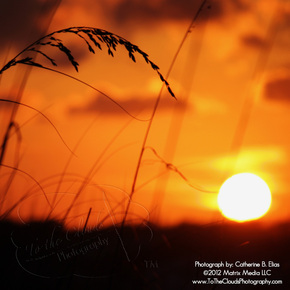 But this time reading it through, my mind was drawn to the sunset. "When the sun had gone down..." The end of one day and the beginning of another. For the Hebrew person, the modern day Jew even, the day begins at sundown. A brand new day, start over. A clear slate? Did Abram experience this covenant as a new day? A new day is a gift. Often a new day comes with new understanding or clarity. But a lot of new days come with baggage from the old days. And I'm just wondering how did Abram navigate the baggage? So much of the journey with God is about letting go and taking up. Letting go of the old and taking up the new. Letting go of sin that entangles and taking up the "cross" daily. As exciting as this "handshake" must've been for Abram, it came with a responsibility of any agreement. It came with the need to let go of one thing in order to take up another. I've often struggled with Lenten practices of "giving things up" because it lacks the other half of the bargain - taking things up. If we let go of one thing, one habit, one practice, one activity, what do we do with the empty "hand?" God figured out how to shake Abram's hand. I bet God would figure out how to shake ours too... if we wanted to covenant. The photographs in this reflection are available Here.
Luke 4:1 Jesus, full of the Holy Spirit, returned from the Jordan and was led by the Spirit in the wilderness, 2where for forty days he was tempted by the devil. He ate nothing at all during those days, and when they were over, he was famished. 3The devil said to him, ‘If you are the Son of God, command this stone to become a loaf of bread.’ 4Jesus answered him, ‘It is written, “One does not live by bread alone.” ’ 5 Then the devil led him up and showed him in an instant all the kingdoms of the world. 6And the devil said to him, ‘To you I will give their glory and all this authority; for it has been given over to me, and I give it to anyone I please. 7If you, then, will worship me, it will all be yours.’ 8Jesus answered him, ‘It is written, 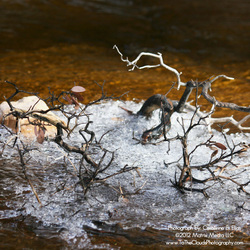 stark branches in ice? in water? Full of the Holy Spirit, Jesus was led by the Spirit in the wilderness. Praying as Jesus taught us saying, ... and lead us not into temptation." It happened to Jesus. Why teach us to pray for it not to happen? I almost hear Jesus saying, "I wouldn't wish that on anyone." And yet, I'm stuck on him being led by the Spirit in the wilderness. Led by the Spirit. The Spirit didn't leave him in the wilderness. The Spirit didn't desert him in the desert. The psalmist was right in asking, "Where can I go from your Spirit? Where can I flee from your presence?" Nowhere. Each Lent I try to find a practice for 6 weeks that will remind me of God's faithful, stick-to-it- presence. And even for those who don't adopt a discipline for Lent, I have found that the season lends itself to a new journey with God. As a pastor, I want to monopolize on that. It's Lent, let's journey together - with the Spirit. I have a long history of finding creative practices during Lent. Years ago I would give up coffee or chocolate. Last year I gave up "trying too hard." A good friend gave up multi-tasking last year. I try to find a practice that will cause me to feel "led by the Spirit" in the desert. 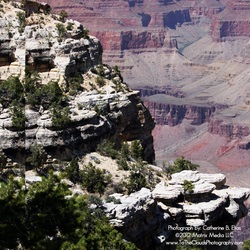 It's amazing how much nature feeds us, isn't it? Why? Because man shall not live on bread alone. The every day grind of our lives, the stop by the grocery store after work, get the homework done, followed by bath time and then bedtime so that I can have 15 minutes of reading a book while putting a load of laundry in before I fall asleep doesn't feed us. We need more. I wonder if that's why Jesus taught us to pray, "give us this day our daily bread." We have six weeks - the season of Lent. What if we found a practice that would help us discern what feeds us? What feeds our minds, our bodies, our spirits? And how about this question - If we let the Spirit lead us, would the Spirit lead us to our daily bread? Would the Spirit lead us if our desert was the suburbs? Would the Spirit lead us while being tempted - even if we're driving in the desert in our mini-van? Would the Spirit lead us? I think the answer is yes. Do we want to be led by the Spirit? I say let's give it a try. All photos are available at To The Clouds Photography.
28 Now about eight days after these sayings Jesus took with him Peter and John and James, and went up on the mountain to pray. 29And while he was praying, the appearance of his face changed, and his clothes became dazzling white. 30Suddenly they saw two men, Moses and Elijah, talking to him. 31They appeared in glory and were speaking of his departure, which he was about to accomplish at Jerusalem. 32Now Peter and his companions were weighed down with sleep; but since they had stayed awake, they saw his glory and the two men who stood with him. 33Just as they were leaving him, Peter said to Jesus, ‘Master, it is good for us to be here; let us make three dwellings, one for you, one for Moses, and one for Elijah’—not knowing what he said. 34While he was saying this, a cloud came and overshadowed them; and they were terrified as they entered the cloud. 35Then from the cloud came a voice that said, ‘This is my Son, my Chosen; listen to him!’ 36When the voice had spoken, Jesus was found alone. And they kept silent and in those days told no one any of the things they had seen. 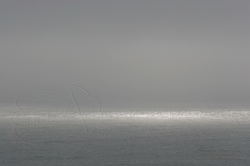 Last week, most of central Jersey drove to work in the clouds. We call it fog. It felt like the clouds. On my commute, I pass a dairy farm. Cows that emerged from the clouds just as I approached the sign on the road that says, "cow crossing, 9am and 3pm." The only other time we are "in the clouds" is when traveling by air, right? Imagine the disciples, those closest to our friend Jesus - climbing the mountain, praying, faithful, tired, praying, faithful, climbing, listening, tired, faithful. And the cloud descends around them. They're within reaching distance of Jesus and still find themselves in a cloud. Unable to see? confused? Unclear. Squinting. Nebulous visibility. Maybe I'm the only one but, "isn't following Jesus a constant journey of nebulous visibility?" Thank God that Peter, James and John were offered a literal experience of a metaphorical reality. I can't help but put myself in Peter's perspective who Luke describes as "doesn't know what he's saying." Of course he doesn't know what he's saying. He's experiencing a cloud, a magical, other-worldly moment. He's working it out; he's a verbal processor. "Let's build a few shrines." Sounds like a good first idea. But if Luke recorded his second idea, what would that be. After "let's build a shrine." what's Peter's next good idea? I'm going to take a guess... "Can we stay here a little longer? I mean, I'm so tired. We've been working so hard and we've experienced so much. Let's just stop for a second and take in the beauty of the mountain, the enormity of our company. I mean Elijah is here; Moses is here. I finally have some clarity. For the love of God, can we just stop the world for a day or two?" No. 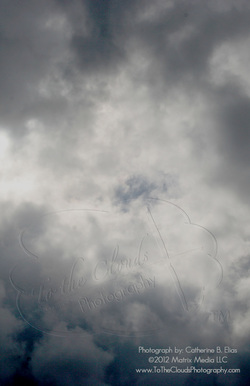 Following Jesus is a life of nebulous visibility. There's no lingering for Peter (or James or John or you or me) in the clouds. No. Sometimes we're given momentary clarity. Momentary. And Peter is not the only one who wants to linger. I want to linger in when I have clarity too. But the cloud lifts, and the bulletin goes to print and the Lenten season wins in its pursuit of me. There is no time to linger. I am left with my half understanding vision of who Jesus is and how it relates to the tradition that is passed down to me. I am left with the thing that is in front of me - the person, the task, the text, the issue. What I learned from the cloud is that the only thing clearly in view is the thing right in front of me anyway. Do that. So like Peter, James and John, I stay awake. Even when I'm tired. And hope for a cloud. I hope for nebulous clarity. The pictures featured in this post are available HERE.
|
Search this blog for a specific text or story:
I am grateful for
|

This work is licensed under a Creative Commons Attribution-NonCommercial-ShareAlike 3.0 Unported License.
